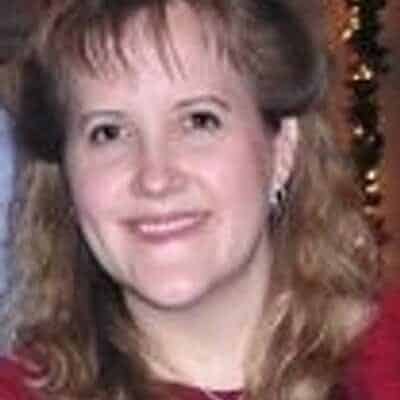CNCF offers diversity scholarships to developers and students to attend KubeCon + CloudNativeCon events. In this post, scholarship recipient Kathryn Hamon, Principal Business Management at AT&T, shares her experience attending sessions and meeting the community. Anyone interested in applying for the CNCF diversity scholarship to attend KubeCon + CloudNativeCon North America 2018 in Seattle, WA December 11-13, can submit an application here. Applications are due October 5th.

By Kathryn Hamon, Principal Business Management at AT&T
To start off with, I need to say all statements and opinions are my own, I do not represent any individual or company except for myself. That said, I work for a large communications and software company, possibly the largest in the world and I have cancer. I am the mother of a six year old future rocket scientist (watch out, NASA!) and my husband makes bagpipes, and I am super proud of both of them. I am exhausted and so sick of effing cancer effing up everything (can I say that? Who cares, I’m gonna). Even with social media, and a decent social life tbh, it’s hard to connect to other people who can completely identify. A lot of times I feel like the only one of my kind. Despite this, I know you are out there my fellow exhausted moms and driven, career-minded cancer patients who are trying to move with the industry. I dedicate this to you.
What I hope to communicate to you through this blog is that despite the monolithic need for pretty much every human being in every industry and career to be constantly building our technical expertise and knowledge lexicon, there are gaps that seem insurmountable. This is partly because we don’t even know what they are. I’m going to learn how to fill those gaps for myself, and I’m going to share how to do it.
Prior to KubeCon, here are the thoughts that were going through my head:
For more than 15 years, I’ve studied and lived network mapping and building, both physical and virtual. I can personally describe, and even build with my hands in some cases, how internet signal gets to and from the central offices, or remote terminals, or satellite, or cell site, to your homes and businesses. Once there, I know how the heck to use it, I know how to network the devices together, I know how to troubleshoot when it doesn’t work. I can get on those devices, I can build files and connect to data and analyze that data in a multitude of ways using at least four completely different softwares and at least three programming languages. I can build interactive tools that will save you hours of time. I feel like I know a lot; I describe myself as “techie.” Paradoxically, I have known about Kubernetes for about 1.5 years, and have yet to link it to anything tangible in my technical lexicon.
What am I missing to make the leap to comprehending DevOps, container strategy, cloud native, ONAP? After all, this leap is what my workplace has been communicating to its employees as the best chance to remain competitively employed.
So I went to KubeCon (thank you, Diversity Committee and sponsors!) I left with eleven and a half pages of notes which will provide me with at least a year of things to study and learn. Eben Freeman’s Queueing Theory PDF and Aaron Schlesinger’s HPA (Horizontal Pod Autoscale, I had to look it up) recommendation will likely be six months of study alone, minimum. I also left with a sense of newness and freshness and community, lots of Twitter follows and hopefully a few friends.
One of the biggest challenges I had at the 2017 K8sCon was that everything seems to be so far reaching, all encompassing. All of the seminars seemed to be offering solutions for steps A-Z. Like “The Cloud” is here, there, and everywhere but (virtually) nowhere all at once. How is a lay person supposed to understand where to start? Finally, listening to the Google team speak, I got that at least one thing we are talking about is the masses of data the come across giant websites, accessing, purchasing, linking, researching, bots, people, governments. I asked a fellow conferee and she confirmed that is one aspect of it. My reaction: “You mean there’s more?” But at least I had a place to start. And it’s also astounding how just a search engine and, more so, those who run it, really reflect so much about our world in a way that was never possible before.
This meta is growing exponentially in a way that many have predicted but only an elite and seriously impressive few are actually putting in motion. I admire them greatly. My goals with learning more about ONAP and K8s are not to become a better software engineer, developer, or open networking community contributor. My goal is understanding, and applying that understanding towards strategy. I hope one day to lead a company with a team of specialists, doing work that matters, innovating and impacting industry.